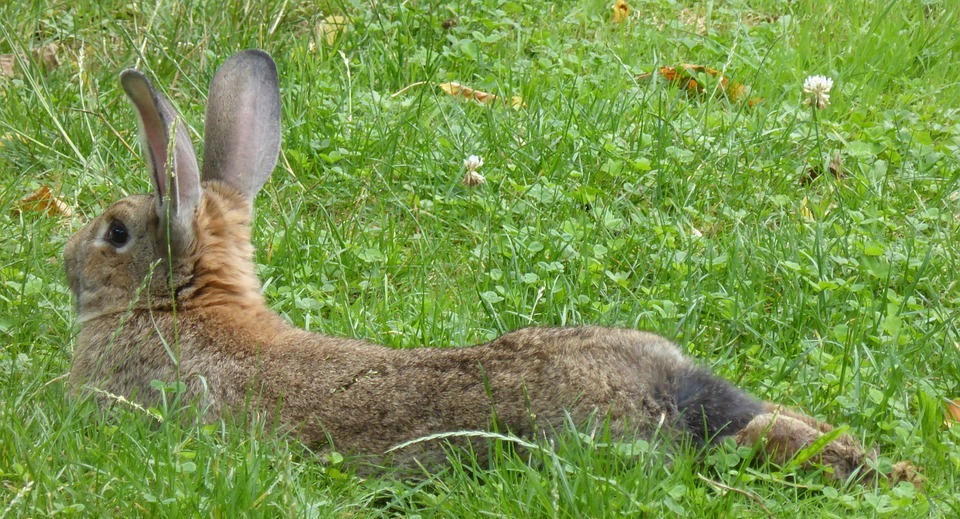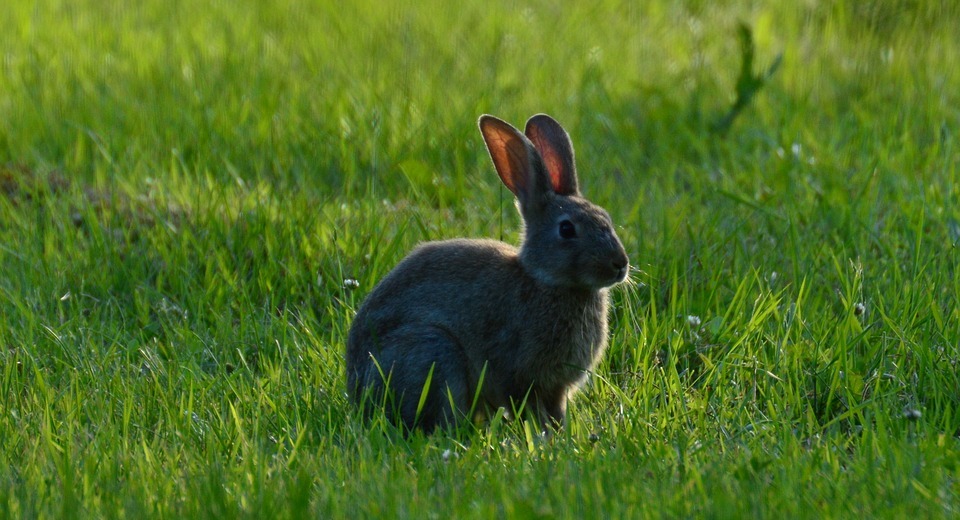This article will delve into the question of whether rabbits can safely consume avocados. We'll explore the potential risks and benefits, examining the chemical composition of avocados and their impact on rabbit health. We'll also discuss alternative safe foods for rabbits and provide answers to frequently asked questions.
Part 1: Understanding Avocado Nutrition

1.1. A Nutritional Powerhouse for Humans
Avocados are a popular fruit enjoyed by many, often lauded for their nutritional value. They are a rich source of:
- Healthy Fats: Avocados contain monounsaturated fats, particularly oleic acid, which is considered heart-healthy and may help reduce cholesterol levels.
- Vitamins: They are a good source of vitamins C, K, E, and B6, which play essential roles in immune function, blood clotting, antioxidant protection, and energy metabolism, respectively.
- Minerals: Avocados are also rich in minerals such as potassium, magnesium, and folate, crucial for maintaining blood pressure, muscle function, and cell division, respectively.
- Fiber: Their high fiber content aids in digestion, promotes satiety, and can help regulate blood sugar levels.
1.2. The Versatility of Avocados in Human Cuisine
Avocados are a versatile ingredient in numerous dishes, adding a creamy texture and mild flavour to salads, sandwiches, dips, and even desserts. Their unique flavour profile complements both savory and sweet dishes, making them a popular choice in various culinary creations.
Part 2: The Toxin Within: Persin and Its Impact

2.1. A Toxic Compound for Rabbits
While avocados are beneficial for humans, they pose a significant risk to rabbits due to the presence of persin. This compound is found throughout the avocado, including the flesh, skin, pit, and leaves.
2.2. Persin's Effects on Rabbit Health
Persin can cause severe health problems in rabbits, potentially leading to:
- Gastrointestinal Issues: Persin can irritate the digestive tract, leading to vomiting, diarrhoea, abdominal pain, and decreased appetite, potentially causing dehydration and malnutrition.
- Cardiac Complications: In more severe cases, persin can affect the heart, leading to irregular heartbeat, weakness, lethargy, and even heart failure.
- Respiratory Distress: Persin can also cause respiratory problems, making it difficult for rabbits to breathe, leading to rapid breathing, wheezing, and even respiratory failure.
2.3. Factors Influencing Toxicity Levels
The severity of persin toxicity can vary depending on factors such as:
- Amount Consumed: Larger quantities of avocado are more likely to cause severe reactions, with even small amounts potentially posing a risk.
- Rabbit's Size and Health: Smaller rabbits and rabbits with pre-existing health conditions may be more susceptible to persin toxicity.
- Part of the Avocado Consumed: The pit and leaves contain the highest concentration of persin, making them particularly dangerous for rabbits.
Part 3: The Danger of Avocado Ingestion
3.1. A Strict No-Go for Rabbits
Due to the potential for serious health complications, feeding avocados to rabbits is strictly prohibited. The risks associated with persin outweigh any potential benefits, making avocado a toxic food for rabbits.
3.2. Accidental Ingestion and Prevention
It is crucial to ensure that rabbits have no access to avocados or avocado products, including the skin, pit, leaves, and any food items containing avocado. Keep avocados out of reach, store them securely, and dispose of them properly to prevent accidental ingestion.
3.3. Misinformation and Reliance on Reputable Sources
There may be conflicting information available online or from other sources regarding avocados and rabbits. It is essential to rely on reputable sources, such as veterinary professionals and organisations dedicated to rabbit care, for accurate and reliable information.
Part 4: Exploring Safe Alternatives
4.1. The Foundation of a Healthy Rabbit Diet
Rabbits thrive on a diet consisting primarily of fresh hay, supplemented with a variety of leafy greens and vegetables. A balanced and nutritious diet is crucial for their overall health and well-being.
4.2. Essential Hay and Leafy Greens
- Hay: Timothy hay is the cornerstone of a rabbit's diet, providing essential fibre, nutrients, and dental stimulation. It should constitute the majority of their daily intake.
- Leafy Greens: Spinach, kale, romaine lettuce, and cilantro are excellent choices, offering vitamins, minerals, and antioxidants. Ensure these are fresh and washed thoroughly before feeding.
4.3. Safe Vegetables and Treat Options
- Vegetables: Bell peppers, carrots, broccoli, and cucumbers can be given in moderation as treats, providing variety and additional nutrients.
- Treats: Small amounts of safe treats, like a few pellets or a small piece of banana, can be given occasionally to reward and bond with your rabbit.
4.4. Importance of Freshness and Gradual Introduction
Always choose fresh, unblemished produce for your rabbit's diet. Avoid wilted or damaged vegetables, as these can harbour bacteria or other contaminants. When introducing new foods, do so gradually, starting with small amounts and monitoring their reaction for any signs of digestive upset.
Part 5: Recognizing Signs of Avocado Toxicity
5.1. Prompt Recognition for Timely Action
Early detection of avocado toxicity is crucial for ensuring prompt treatment and increasing the chances of a successful recovery. Recognizing the signs of toxicity can make a significant difference in the outcome.
5.2. Common Symptoms of Avocado Toxicity
If you suspect your rabbit has ingested avocado, watch for the following symptoms:
- Gastrointestinal Issues: Vomiting, diarrhoea, abdominal pain, decreased appetite, and lethargy.
- Cardiac Symptoms: Irregular heartbeat, weakness, lethargy, and collapse.
- Respiratory Distress: Difficulty breathing, rapid breathing, wheezing, and laboured breathing.
- Other Signs: Tremors, seizures, loss of coordination, and changes in behaviour.
5.3. Immediate Veterinary Attention is Crucial
If you observe any of these symptoms, it is essential to contact a veterinarian immediately. Prompt treatment can significantly improve the outcome, especially in cases of severe toxicity.
Part 6: The Role of Veterinary Expertise
6.1. Seeking Professional Guidance
Veterinarians have extensive knowledge of rabbit health and can provide the most accurate and up-to-date information on their diet and care. They can identify potential risks and offer tailored recommendations for individual rabbits.
6.2. Individualised Advice and Assessment
A veterinarian can assess your rabbit's individual needs and provide tailored recommendations for their diet and overall health, considering their age, breed, health history, and lifestyle.
6.3. Emergency Care and Treatment Options
In cases of suspected avocado toxicity, a veterinarian can provide emergency care, assess the severity of the situation, and determine the best course of action, which may include inducing vomiting, administering supportive care, or providing other treatments as needed.
Part 7: Frequently Asked Questions
7.1. Can rabbits eat avocado skin or pit?
No, rabbits should not consume any part of the avocado, including the skin or pit. These parts contain the highest concentration of persin and are highly toxic to rabbits, even in small quantities.
7.2. Is it safe to give rabbits avocado oil?
While avocado oil is often considered safe for human consumption, it is not recommended for rabbits. The processing of avocado oil may remove some of the persin, but it's best to err on the side of caution and avoid giving it to rabbits.
7.3. What if my rabbit eats a small piece of avocado?
If your rabbit has ingested a small piece of avocado, it's crucial to contact your veterinarian immediately. They will advise you on the appropriate course of action, which may involve inducing vomiting or administering supportive care, depending on the severity of the situation.
7.4. Can I give my rabbit avocado leaves?
Avocado leaves are also toxic to rabbits due to their high persin content. It is essential to avoid giving them to your rabbit, as they can cause severe health problems.
7.5. Are there any avocado products that are safe for rabbits?
No, all parts of the avocado, including processed products such as guacamole, avocado spread, or avocado-based treats, are considered unsafe for rabbits due to the presence of persin.
7.6. Can I give my rabbit avocado-flavoured treats?
Avoid any treats or snacks marketed as avocado-flavoured. Even if the product does not contain actual avocado, it may contain artificial flavourings that could be harmful to your rabbit.
7.7. Can rabbits eat avocado seeds?
No, avocado seeds contain the highest concentration of persin and are extremely toxic to rabbits. Even a small amount can be fatal.
7.8. Can I feed my rabbit avocado toast?
Avocado toast is not safe for rabbits. The avocado itself is toxic, and the bread contains ingredients that are not suitable for rabbits, such as wheat and gluten.
7.9. Can I give my rabbit avocado-flavored supplements?
No, avoid giving your rabbit any supplements or medications that contain avocado or avocado derivatives, as they may contain persin and be harmful.
7.10. What should I do if I think my rabbit has eaten avocado?
If you suspect your rabbit has eaten avocado, contact your veterinarian immediately. Provide them with as much information as possible, including the amount of avocado consumed, when it happened, and any symptoms your rabbit is exhibiting.
This comprehensive information should help rabbit owners make informed decisions about their pet's diet and avoid any potential risks associated with avocado consumption. Remember, when it comes to rabbit health, safety should always be the top priority.
Everyone is watching
-

Do Rabbits Lay Eggs? (The Surprising Truth)
OTHER TYPES OF PETSThis article will unravel the common misconception that rabbits lay eggs, exploring the fascinating world of r...
-

What's a Group of Rabbits Called? (A Comprehensive Guide)
OTHER TYPES OF PETSThis article delves into the fascinating world of rabbits, exploring the various terms used to describe a grou...
-

Can Rabbits Eat Grapes? A Guide to Safe Rabbit Treats
OTHER TYPES OF PETSThis comprehensive guide will explore the safety and suitability of grapes for rabbits, providing detailed inf...
-

Predators That Hunt Rabbits: A Guide to Natural Enemies
OTHER TYPES OF PETSI've always been fascinated by the circle of life, that delicate dance between predator and prey. Growing up ...
-

Are Rabbits Nocturnal Animals?
OTHER TYPES OF PETSThe question of whether rabbits are nocturnal animals is a fascinating one, with a surprisingly complex answer...
